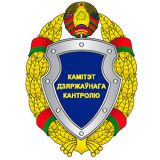Schmidt & Schmidt is happy to help you legalize your public documents from the Member States of the Eurasian Economic Union for international use.
The Eurasian Economic Union is an economic union of several post-Soviet states aimed at creating a common economic space. In addition to the free movement of goods and services, the Union promotes legal and administrative integration. A key aspect of this integration is the mutual recognition of official documents without additional legalization, which is particularly important for cross-border education, migration, and administrative procedures.
All of the countires of the EAEU are also Parties to the Hague Convention Abolishing the Requirement of Legalization for Foreign Public Documents, which means that public documents from these countries are exempt from the costly and lengthy procedure of consular legalization. Instead public documents can be certified by the apostille to be valid abroad, provided the state of destination has also acceeded to the Convention.
The Hague apostille (or simply apostille) is a stamp of rectangular shape. The heading "Apostille (Convention de la Haye du 5 octobre 1961)" written in French is a necessary requirement for the apostille's validity. The Hague apostille confirms the authenticity of the signature, the position in which the signer has acted, and the authenticity of the seal or stamp with which the document is attested.
Each apostille is registered and contains the issue date and its unique number. The apostille is issued by the competent authorities designated by the state for each document type. The apostille has to be obtained in the country that has issued the document. More information about the country-specific requirements for the apostillization can be found in our country information sections.
Country information
No legalization required within the EAEU
Within the EAEU, even more far-reaching simplifications apply. The Treaty on the Eurasian Economic Union, which entered into force on January 1, 2015, provides that public documents issued by a competent state authority in one Member State are recognized in all other Member States without the need for an apostille or consular legalization.
This applies, for example, to educational certificates, civil status documents such as birth or marriage certificates, migration certificates, medical statements, and other official records.
As a rule, a certified translation is sufficient for the use of such documents abroad if the language differs from that of the destination country. This mutual recognition highlights the Union’s goal of reducing administrative barriers within the common area and facilitating the free movement of people.
Educational qualifications
A particularly well-regulated area of mutual recognition within the EAEU concerns education. In 2014, a multilateral agreement was concluded on the mutual recognition of educational qualifications, ensuring that, for example, a bachelor's degree or an International Baccalaureate diploma obtained in Russia is valid in Kazakhstan or Armenia without any additional legalization.
In addition, there are supplementary bilateral agreements between individual states—such as between Russia and Kazakhstan or Russia and Belarus—which have been in force since the 1990s and facilitate the exchange and recognition of academic qualifications. These arrangements apply both to university admissions and to the recognition of qualifications for professional purposes.
The Minsk Convention of 1993
Another important basis for the simplified use of public documents is the Convention on Legal Assistance and Legal Relations in Civil, Family and Criminal Matters, signed in Minsk in 1993. Commonly referred to as the Minsk Convention, it governs the mutual recognition of public documents among numerous countries of the former Soviet Union. The contracting states include, among others, Russia, Belarus, Armenia, Azerbaijan, Kazakhstan, Kyrgyzstan, Moldova, Tajikistan, Turkmenistan, Uzbekistan, Georgia, and Ukraine.
According to Article 13 of this Convention, consular legalization is not required for public documents issued by these countries. Instead, a notarized translation is sufficient, provided the language of the document is not understood in the country of destination. Notably, the Minsk Convention also covers the recognition of judicial and notarial documents — an important aspect that goes beyond the scope of the Hague Convention.
Bilateral agreements with Russia
In addition to the Minsk Convention and the EAEU regulations, Russia has concluded bilateral agreements on mutual legal assistance with many former Soviet states. These treaties also ensure the recognition of public documents without the need for an apostille or consular legalization. They remain in force even if multilateral agreements are suspended or terminated.
For example, such treaties exist between Russia and Belarus (1995), Armenia (1995), Uzbekistan (1993), and Kazakhstan (1996). In practice, this means that even if a country like Georgia is no longer a member of the EAEU or withdraws from the Minsk Convention, a bilateral agreement can still serve as the legal basis for the simplified use of public documents.





































